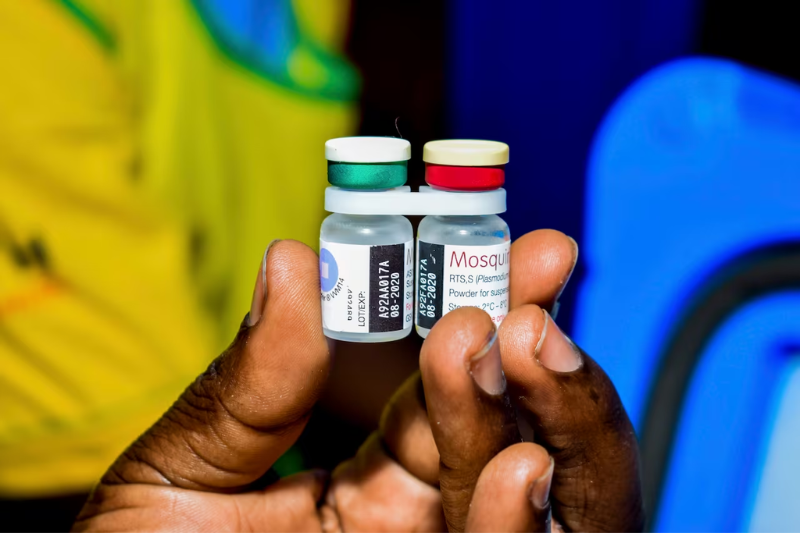Landmark Shipment: Malaria Vaccine Reaches Cameroon
Cameroon received a significant delivery on November 22nd—the first consignment of the World Health Organization (WHO)-recommended malaria vaccine. This marks the vaccine’s initial dispatch to a country outside the pilot program phase, signaling an imminent scaling up of immunization efforts across high-risk regions in Africa.
Malaria’s Menace: A Call for Urgent Action
Malaria remains a potent threat, claiming a child’s life every minute globally, with Africa bearing a staggering 95% of cases and 96% of related deaths in 2021. With 247 million cases worldwide between 2021 and 2022 and 619,000 fatalities, the urgency to combat this disease looms large.
Malaria Vaccine’s Expanded Rollout
The RTS-S vaccine, administered to children in Kenya as part of the early-stage Malaria Vaccine Implementation Program, begins its expanded deployment. In the upcoming weeks, 1.7 million doses are anticipated to arrive in Burkina Faso, Liberia, Niger, and Sierra Leone, followed by further distributions to various African nations. However, the vaccine’s four-dose schedule poses logistical challenges, requiring meticulous planning for successful administration.
Keep Reading
Impact and Promise of Malaria Vaccination
The pilot phase—the Malaria Vaccine Implementation Programme (MVIP)—in Ghana, Kenya, and Malawi showcased promising results. Over two million children were vaccinated, resulting in a 13% decline in child mortality and a decrease in severe malaria hospitalizations. The success prompted the WHO’s recommendation for a second malaria vaccine, R21, developed by the Serum Institute of India, expected to bolster the fight against the disease.
The Future of Malaria Control: Vaccine Integration and Collaboration
Vaccination against malaria supplements existing control measures endorsed by the WHO, such as nets, indoor spraying, and treatment. Integration with non-vaccine interventions is crucial to enhancing overall malaria prevention strategies.
Global Response and Leadership
Global health leaders hail the malaria vaccine’s arrival, expressing optimism for its impact on saving lives. Gavi, the Vaccine Alliance, UNICEF, and the WHO collaborate to ensure successful deployment alongside other preventive measures.
Hope Amidst Challenges
Leaders emphasize the malaria vaccine’s potential to be a game-changer in controlling the disease, yet acknowledge the ongoing need for motivation and resources to expand its reach. The vaccine’s introduction across Africa signifies a significant step forward in curbing malaria-related mortality.
A Vital Tool in Disease Prevention
Regional health authorities assert the vaccine’s pivotal role in averting severe malaria and reversing the upward trend in cases. The vaccine represents an essential addition to existing preventive strategies, underscoring the collective efforts to combat malaria’s detrimental impact on communities.
A New Chapter in Malaria Control
The arrival and imminent deployment of the malaria vaccine stand as a beacon of hope in the fight against this deadly disease. With careful planning, collaboration, and continued commitment, the vaccine represents a crucial tool in safeguarding the health and well-being of millions in malaria-endemic regions.
United Front Against Malaria: Collaboration and Commitment
Gavi’s CEO, David Marlow, lauds the collective decision to prioritize the malaria vaccine, recognizing it as a pivotal step in global health. The commitment to deploy this groundbreaking vaccination through Gavi programs underscores a joint effort to maximize its impact alongside other essential interventions.
Catherine Russell, Executive Director of UNICEF, echoes these sentiments, expressing hope for the vaccine’s potential to reshape the fight against malaria. With African nations leading the charge, the vaccine’s introduction signals a transformative era in malaria control, envisaging thousands of saved lives annually.
Dr. Tedros Adhanom Ghebreyesus, WHO’s Director-General, acknowledges the historic moment but emphasizes the need for sustained efforts to ensure equitable access to the malaria vaccine for all children.
Dr. Matshidiso Moeti, WHO Regional Director for Africa, underscores the vaccine’s significance in shielding children from severe forms of the disease and strengthening efforts to curtail malaria’s resurgence.
A Milestone for Health Equity
The introduction of the malaria vaccine in regions burdened by the disease offers a beacon of hope. However, the journey ahead demands continued collaboration, resource allocation, and a concerted push to expand vaccine coverage, ensuring equitable access for vulnerable populations.
As this groundbreaking initiative unfolds, it signals not just a medical breakthrough but a testament to global solidarity in tackling one of the world’s deadliest diseases. With sustained commitment and concerted action, the malaria vaccine paves the way for healthier, malaria-free generations in regions long plagued by this relentless scourge.

